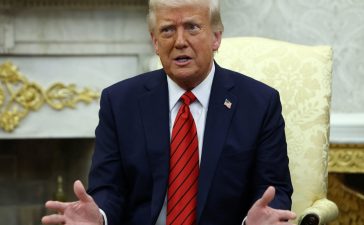
The German automaker’s electric vehicles are made on the same assembly line as gasoline cars and look similar from the outside. That approach, using the same basic body for electric, hybrid, gasoline and diesel cars, has been viewed as an awkward and inefficient compromise that some established carmakers have deployed as they struggle to compete with Tesla and emerging Chinese automakers that produce cars designed solely for battery power.
But confounding the pundits, BMW’s strategy has paid off. The company sold 376,000 EVs last year, including some under its Mini brand, a 75% increase from the previous year. In the luxury segment, BMW was second only to Tesla, which remained dominant, with 1.8 million cars. EVs accounted for 15% of BMW sales in 2023, up from 9% the previous year.
The company’s growth comes as sales of EVs have risen at a slower pace overall around the world. What is even more surprising is that BMW, unlike General Motors or Ford Motor, made a profit on the EVs it sold.
BMW’s experience suggests there is hope for at least some established carmakers as Chinese carmakers such as BYD start to export cars to other Asian countries, Europe and Latin America. As EVs move into the mainstream, the popularity of BMW cars suggests that many buyers prize the familiarity and workmanship of long-standing carmakers and remain wary of newer brands.
If so, BMW’s approach could show a path to other automakers that have been manufacturing automobiles for decades but have made little headway in the transition to battery-powered vehicles. BMW’s strategy bought the company time to develop expertise in battery technology and to design a line of cars specifically to be electric. It has helped the company, based in Munich, cope with fluctuations in demand because it can more easily dial up or down production of different types of cars. The approach also helped BMW hang on to customers who are interested in electric propulsion but are not ready for a sharp break from the past.











